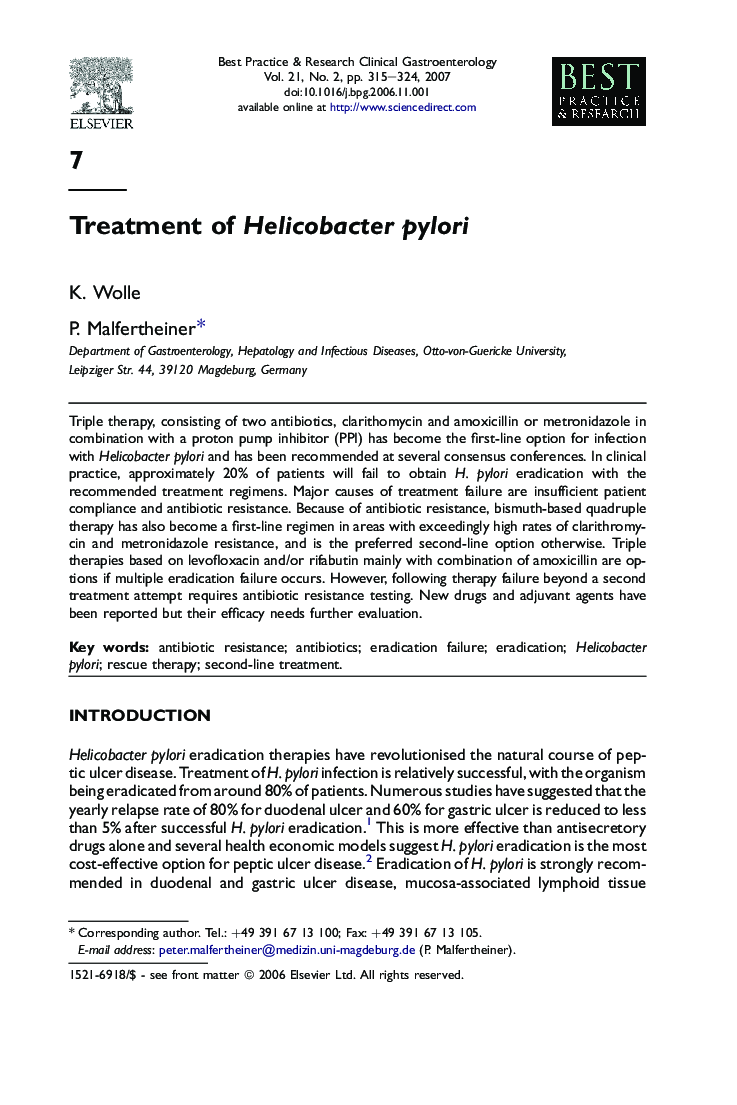| Article ID | Journal | Published Year | Pages | File Type |
|---|---|---|---|---|
| 3254661 | Best Practice & Research Clinical Gastroenterology | 2007 | 10 Pages |
Triple therapy, consisting of two antibiotics, clarithomycin and amoxicillin or metronidazole in combination with a proton pump inhibitor (PPI) has become the first-line option for infection with Helicobacter pylori and has been recommended at several consensus conferences. In clinical practice, approximately 20% of patients will fail to obtain H. pylori eradication with the recommended treatment regimens. Major causes of treatment failure are insufficient patient compliance and antibiotic resistance. Because of antibiotic resistance, bismuth-based quadruple therapy has also become a first-line regimen in areas with exceedingly high rates of clarithromycin and metronidazole resistance, and is the preferred second-line option otherwise. Triple therapies based on levofloxacin and/or rifabutin mainly with combination of amoxicillin are options if multiple eradication failure occurs. However, following therapy failure beyond a second treatment attempt requires antibiotic resistance testing. New drugs and adjuvant agents have been reported but their efficacy needs further evaluation.
